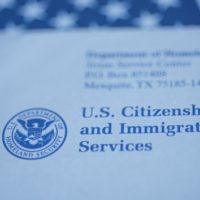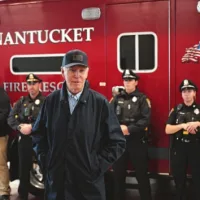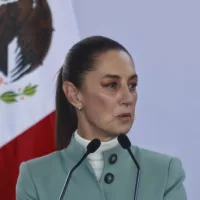
Evgenia Parajanian/iStockBy LAUREN LANTRY, ABC News
(WASHINGTON) — Kelvin Silva believed he was safe from deportation.
Silva, 44, was born in the Dominican Republic and legally moved to the United States when he was 11, joining his father who was a recent naturalized U.S. citizen, according to court documents including his father’s naturalization papers and the petition his father filed to bring him to the U.S.
Silva never returned to the Caribbean nation and has lived in the U.S. since the late 1980s, according to a petitioner’s motion. He was 17 when his father died, and Silva told ABC News at that time he wasn’t in the right emotional place to confirm his own legal status.
“My belief was that I was a citizen through my father,” Silva told ABC News.
But that wasn’t the case. When Silva came to the U.S., the Immigration and Nationality Act of 1940 was still the law. It barred children like Silva, whose parents were never officially married, from gaining citizenship status through their fathers. In 2000, the Child Citizenship Act overturned the 1940s law; the legislation was not, however, applied retroactively.
Because Silva never became a U.S. citizen, he is now facing deportation to a country he barely knows after serving time in federal prison on drug charges, even though he earned his GED, completed a drug abuse program and concedes he made “mistakes.”
Silva hopes he can outlast the final days of the Trump administration and prays the Biden administration will allow him to stay. His lawyers argue the law that prevented him from being recognized as a citizen is biased because of its emphasis on marriage and is a form of additional “punishment” and “family separation.”
Time behind bars
Silva’s mom abandoned him shortly after he was born, and his father, who died in an accident, had custody over him.
“I was really devastated,” Silva said. “I had so much pain in me, and I had nobody to talk to.”
Without his father, Silva said his life became a “roller coaster.” He soon found himself on the streets.
“I’m going to be honest, I was selling drugs,” he admitted. “I regret it. I regret every [one] of the things I did in my past.”
Silva was convicted and incarcerated in 2013 for possession with intent to distribute marijuana and cocaine. He was sentenced to 127 months behind bars on the federal charges and was rendered automatically deportable under immigration law because of his crimes.
But Silva said he learned a lot while in prison. He learned to think about others and to put himself in somebody else’s shoes.
“We’ve made mistakes,” Silva said. “But it’s not how you make the mistakes; it’s how you get up to fix them and face them.”
While he was incarcerated, he earned his GED, completed numerous Bureau of Prison programs with accolades and even taught classes on how to be a parent.
On March 29, 2017, Silva successfully completed the Residential Drug Abuse Program, “an intensive cognitive-behavioral therapy program,” according to his certificate. He was recognized by his peers for his “exceptional demonstration of the attitude of caring” and “willingness.”
Silva’s behavior and accomplishments in prison impressed the BOP enough for his sentence to be decreased.
Silva said he served his time, learned his lesson and was ready to go back into society and prove himself to his community and family, including his two sons and a daughter.
“I believe I deserve a second chance,” Silva said. “Give me a chance for me to be a father to my children, to be a brother to my sisters, to be an uncle to my nephew and nieces.”
Silva’s release date was tentatively scheduled for July 7, 2019, according to court documents.
ICE steps in
ICE, however, had other plans. Two days before his tentative release date, ICE served Silva with a notice to appear and started its removal proceedings against him.
He’s been in ICE custody ever since, according to an ICE statement provided to ABC News.
It was then that Silva says he realized he was not a U.S. citizen but a permanent resident.
“I was in shock,” Silva said. “To this day, I still can’t believe it.”
Silva said he knows hardly anything about the Dominican Republic.
“My kids, my family, everything is here,” Silva explained.
Cristina Velez, a senior staff attorney for the National Immigration Project of the National Lawyers Guild and one of Silva’s lawyer, told ABC News: “Forcing Kelvin to leave the United States more or less permanently to a place where he hasn’t been for more than 30 years, I don’t see how it’s anything but a punishment. And also, it’s another form of family separation.”
An ICE public affairs officer told ABC News that Silva “lawfully entered the U.S. in April 1988 but violated the terms of his admission” when he committed his crimes.
“He is subject to removal based on a final order of removal issued by a federal immigration judge,” the officer said.
Federal Immigration Judge Randall Duncan issued that exact order on March 6, saying Silva “is a native and citizen of the Dominican Republic” and “shall be removed to the Dominican Republic,” according to court documents.
Velez called the order for his removal an additional form of punishment, saying, “The only reason that Kelvin is in removal proceedings and that ICE is trying to deport him is because of the crime that he has already served time for and has repaid his debt to society for.”
Pursuing his status in court
In 2019, under President Donald Trump, more than 20,000 people were being deported from the United States each month, according to ICE. In total, 267,258 people were deported. But since the coronavirus pandemic began, these monthly numbers have dropped to below 10,000.
But Silva wasn’t like many of the thousands of undocumented immigrants who have been deported. Silva was a lawful, longtime permanent resident. He had a Social Security card, paid taxes and could access public assistance programs — up until an immigration judge revoked his status.
In fact, the BOP allowed him to participate in its Residential Drug Abuse Program, which “a deportable inmate does not qualify for,” according to Justin Long, a spokesperson for the BOP. This is the same program in which Silva was recognized for being “caring.”
Under the Trump administration, there has been a push to eliminate Obama-era rules that prioritized the deportation of undocumented dangerous felons.
“He’s not a dangerous person,” Velez said of Silva.
‘Need a miracle’
His lawyers said they are doing everything they can to postpone his deportation, even taking his case to the circuit court, where they’re arguing that the provision preventing him from being recognized as a citizen is discriminatory and violates the Equal Protection Clause of the Constitution.
“A survey of relevant cases reveals a disproportionate effect on people born outside of marriage in majority Black countries,” Meredyth Yoon, one of Silva’s attorneys, wrote in a petitioner’s motion.
According to the court filing, 54% of the 63 federal circuit court denials of relief in 2020 were people from Caribbean countries that have a majority Black population. In comparison, only three people were denied from Mexico and three from all of Europe.
With less than 40 days until Trump leaves office, Silva said he has two obstacles to face. First, his deportation needs to be postponed past Jan. 20 so he can outlast the current administration. Then, he’s hoping his appeals will reprieve any final decision long enough for a new administration to consider changing its policies or granting him the right to stay in the U.S.
“Right now, we just need a miracle,” Silva said. “I’m depending and hoping for when Biden takes the presidency, he can help us out of this situation.”
Velez agreed, saying that she’s “sure that the Biden administration would not want to see a law that is racially discriminatory be used to banish people from the United States.”
President-elect Joe Biden has said he wants to roll back many of Trump’s immigration policies and will “commit significant political capital to finally deliver legislative immigration reform.” But experts say these overhauls could take time.
But with Biden announcing Cecilia Muñoz to his transition team, who served as the face of former President Barack Obama’s immigration policies, immigration reform advocates fear the Biden administration may not act quickly enough — and time is something Silva may not have.
Copyright © 2020, ABC Audio. All rights reserved.















